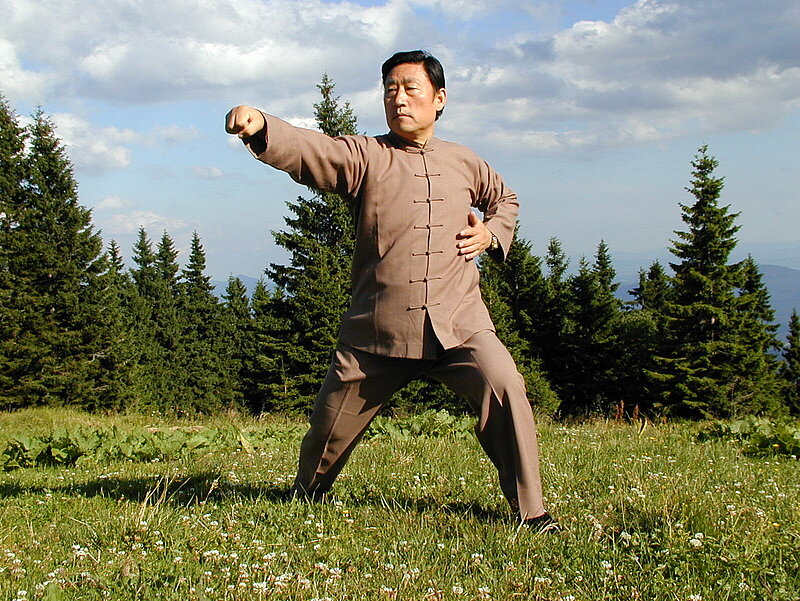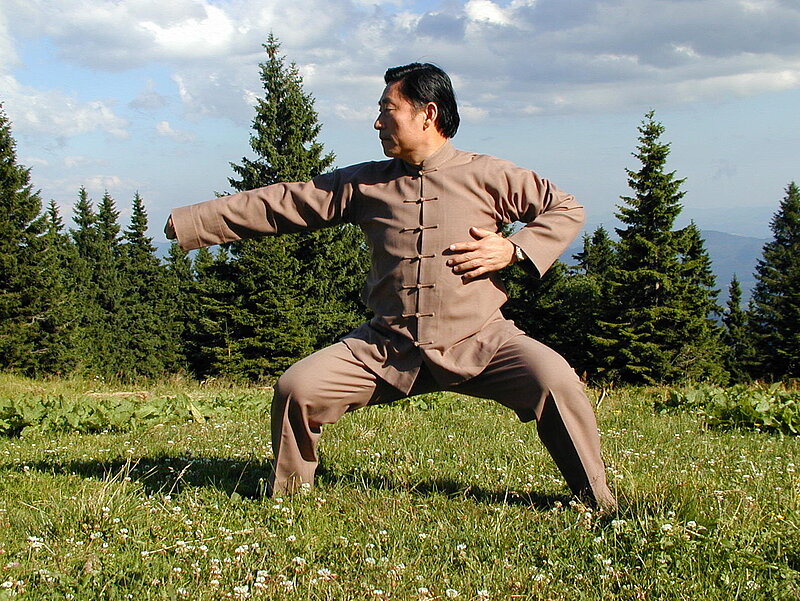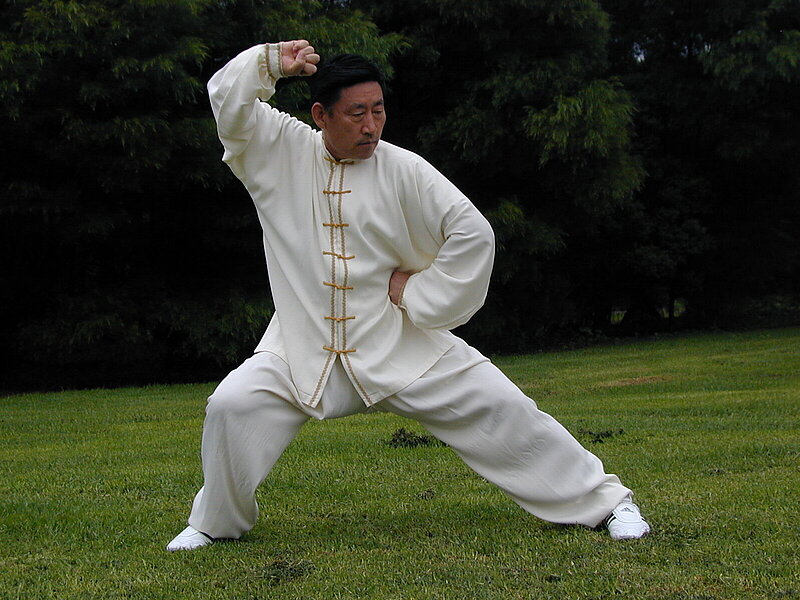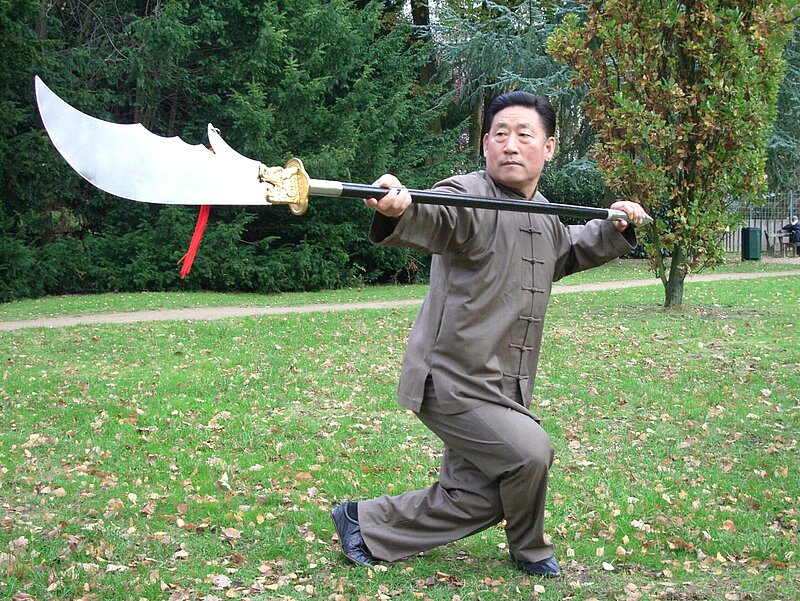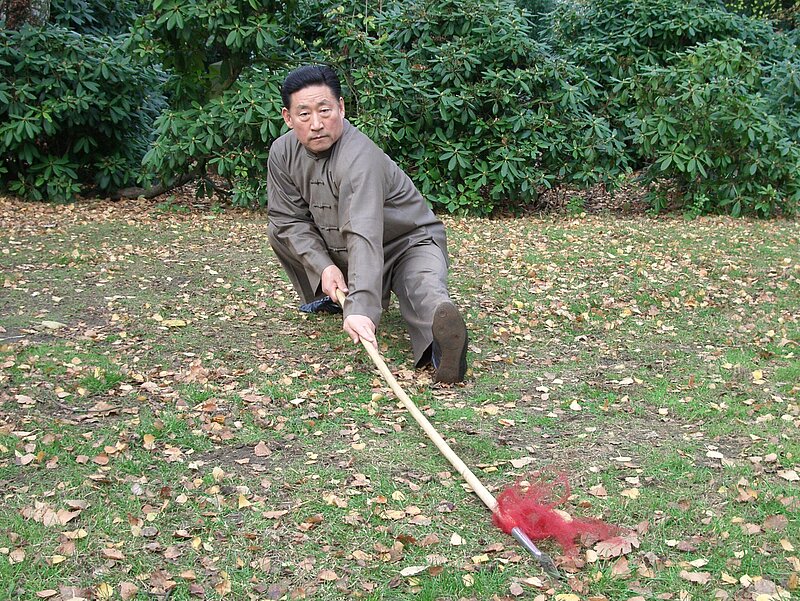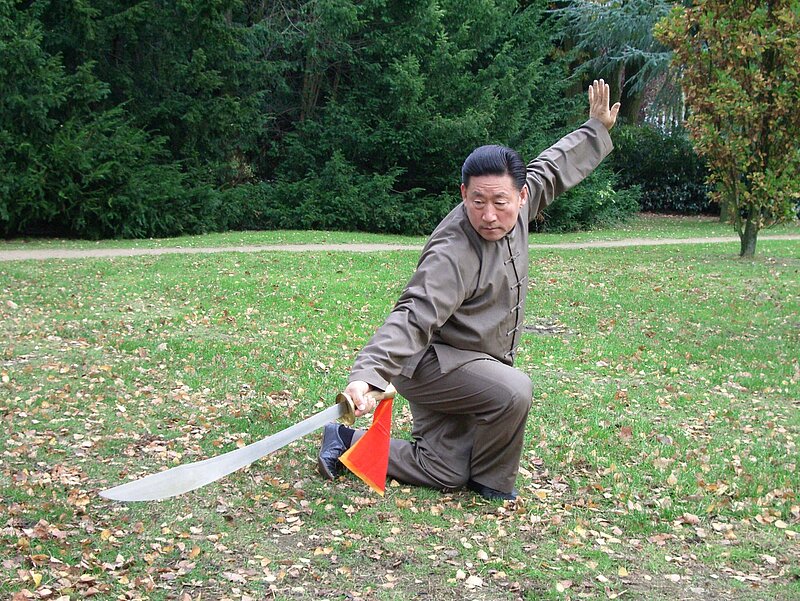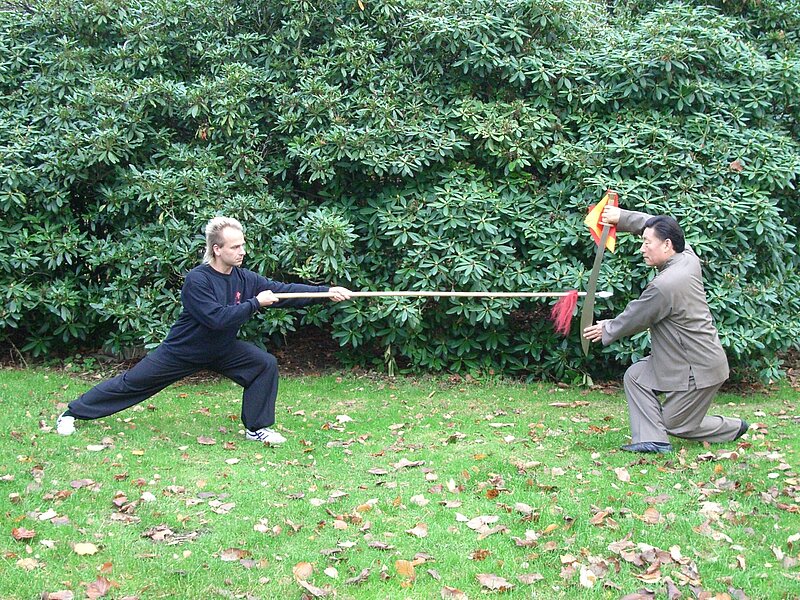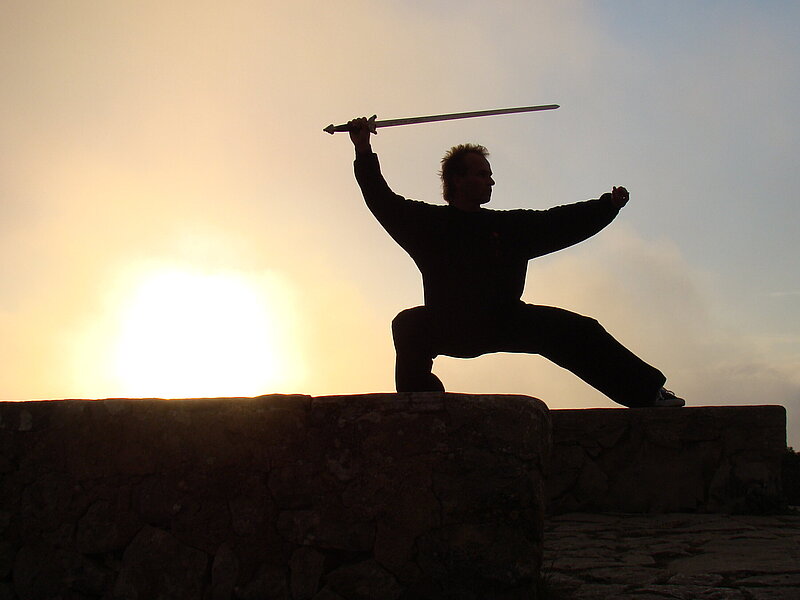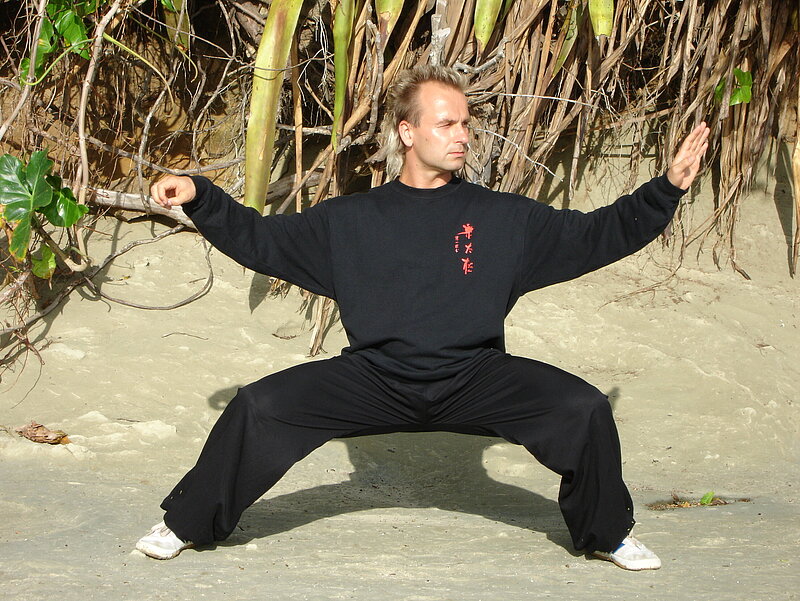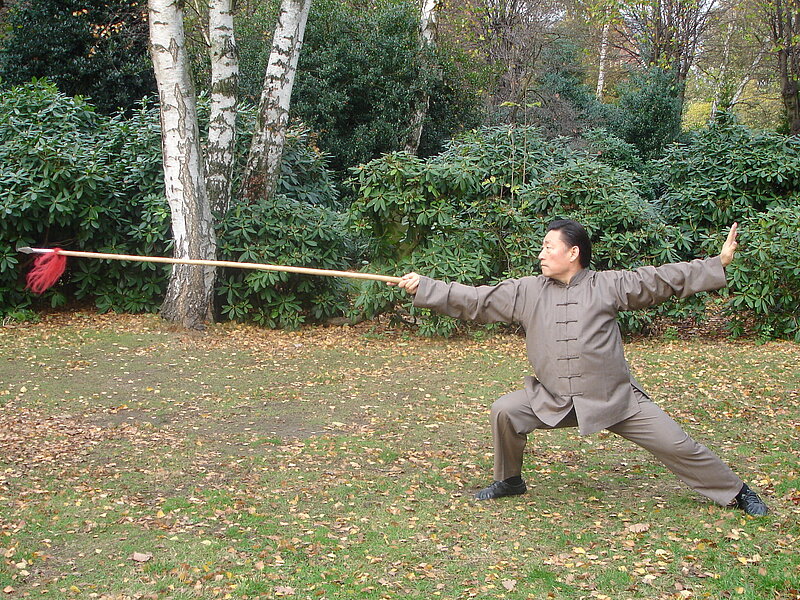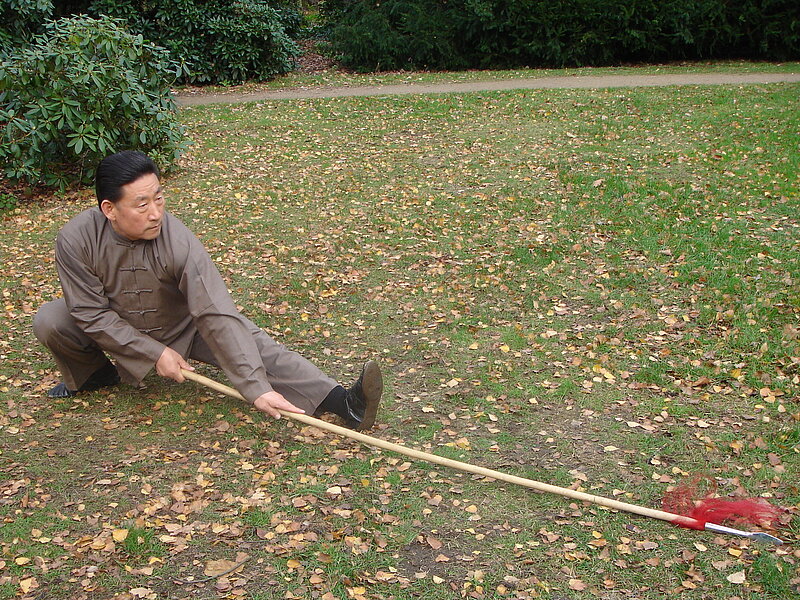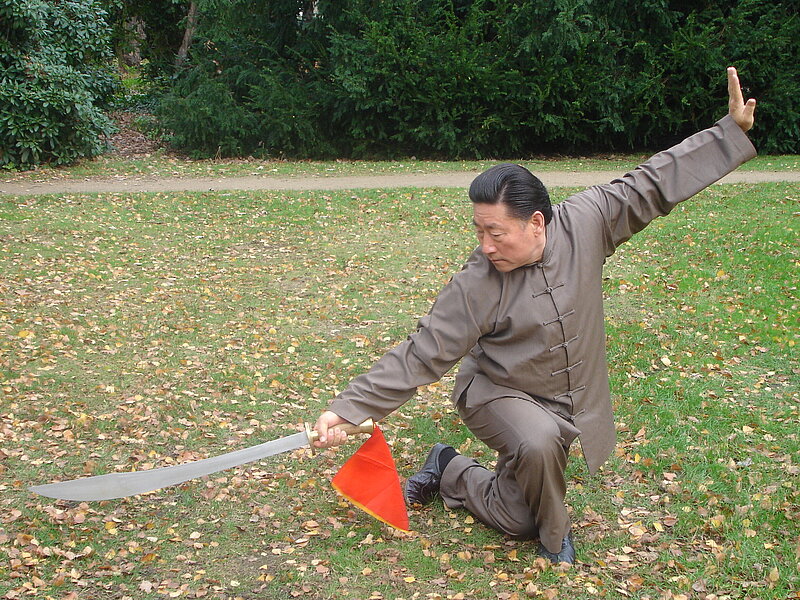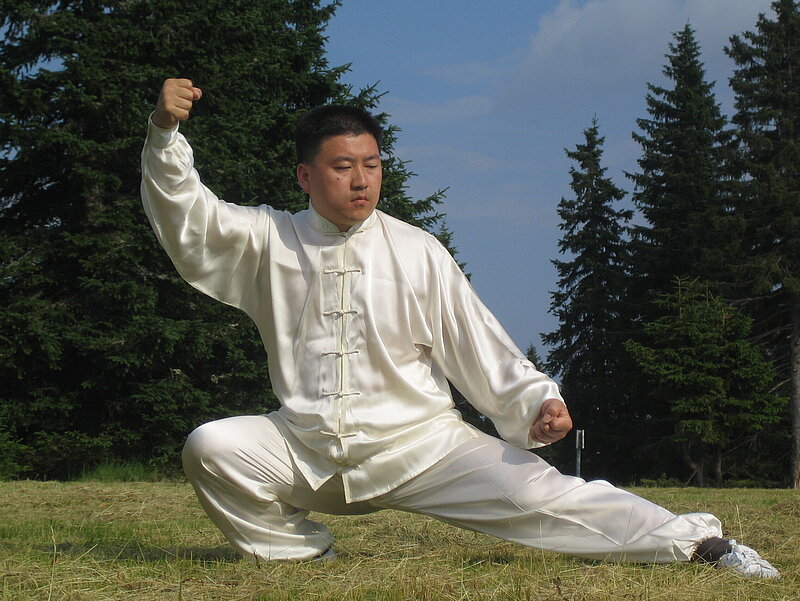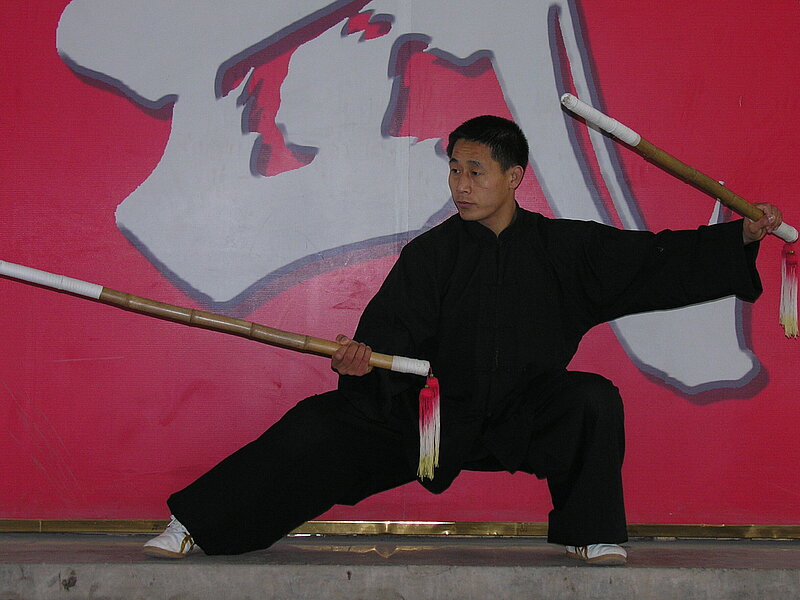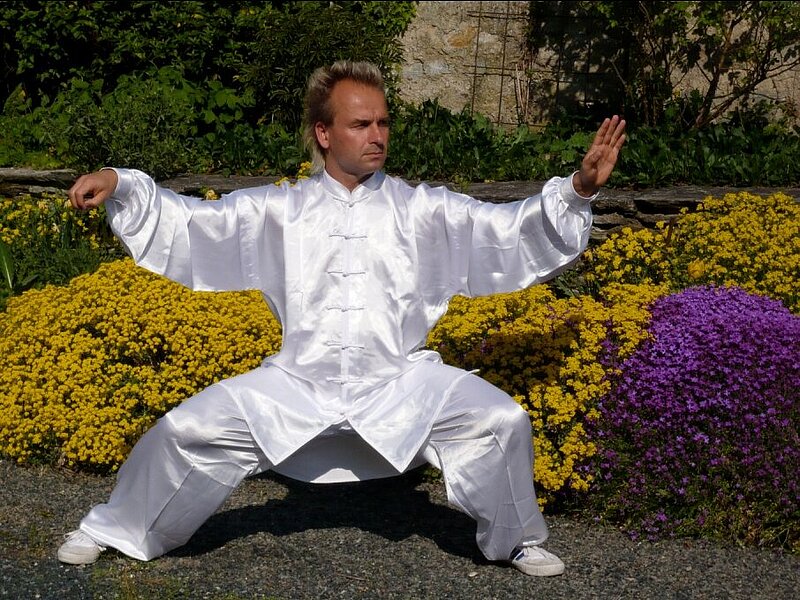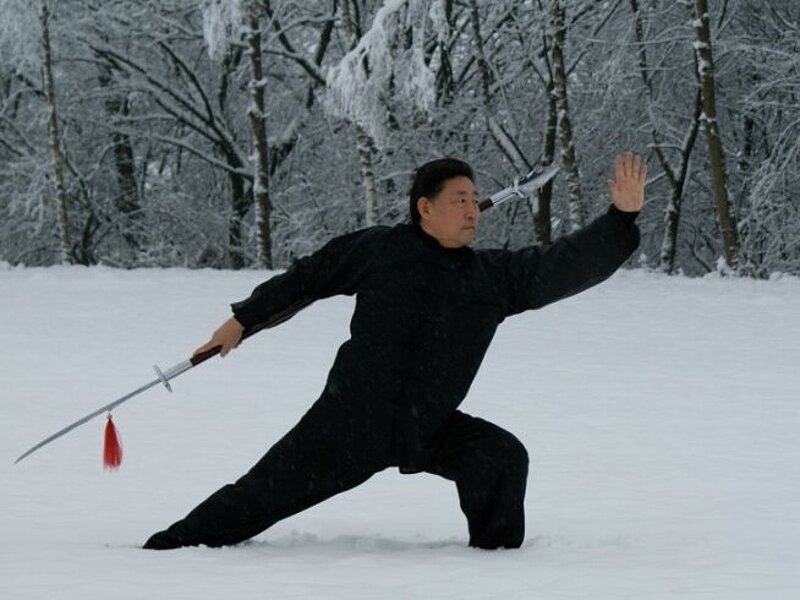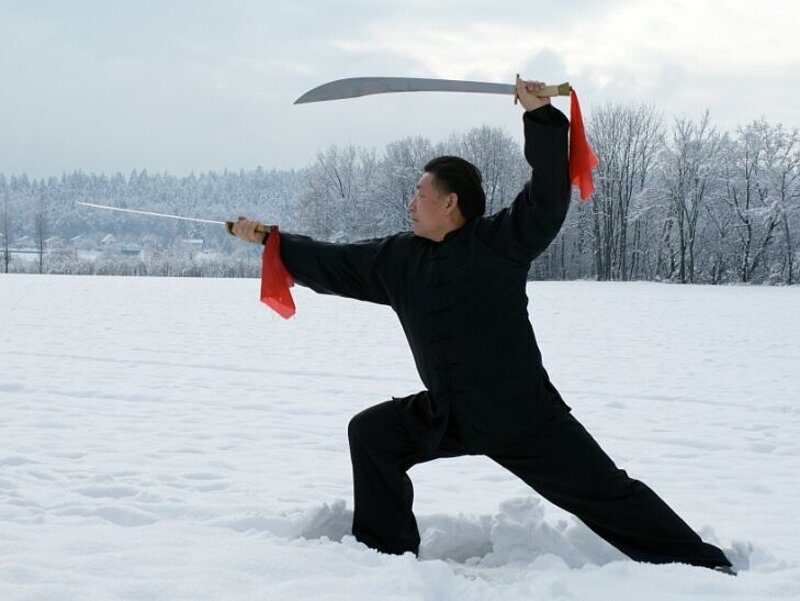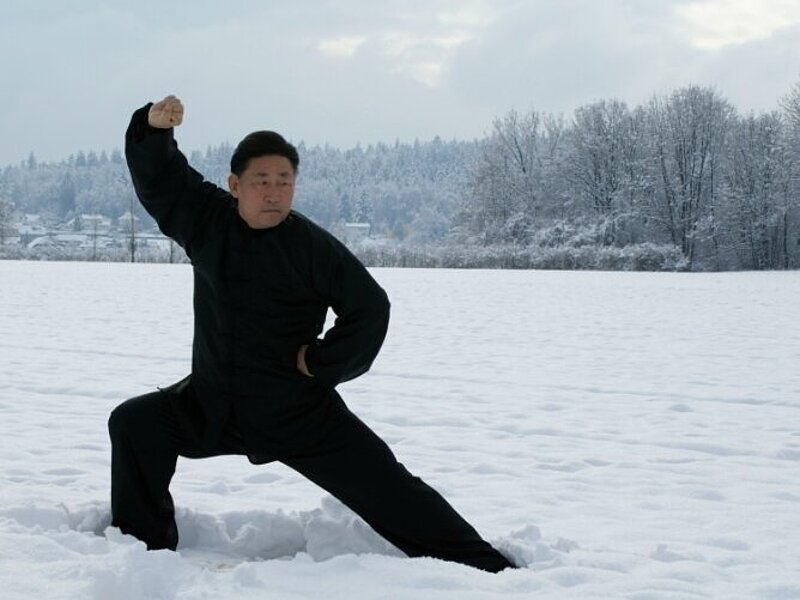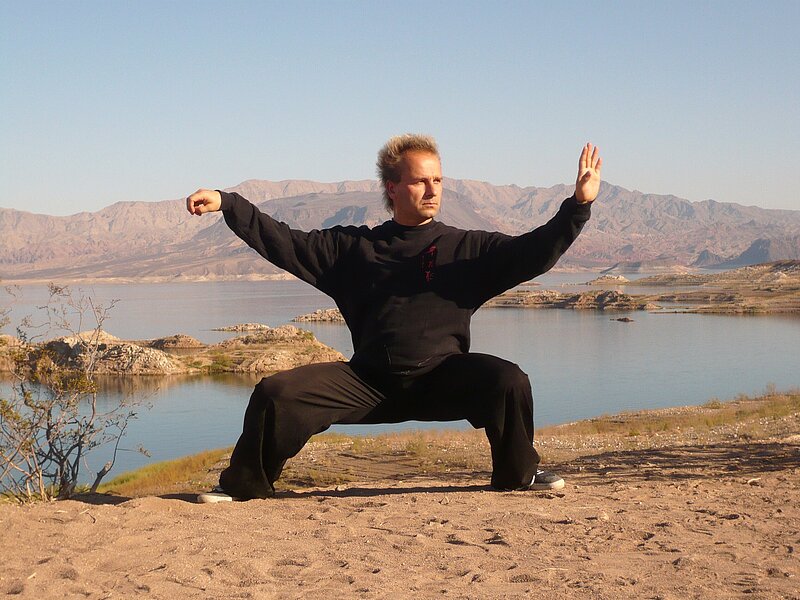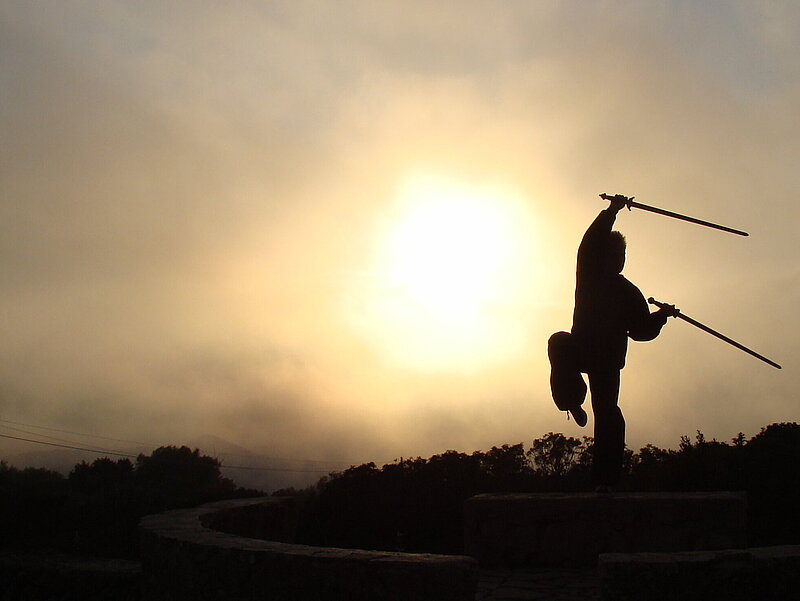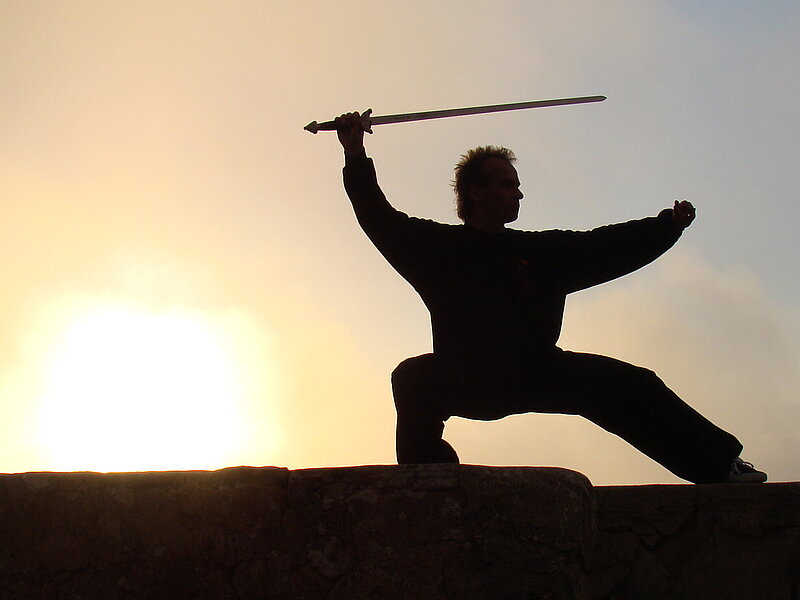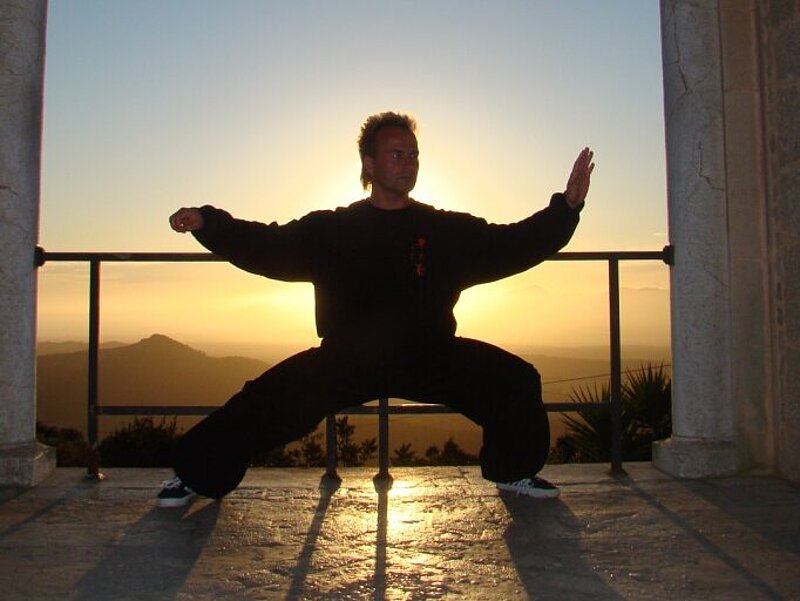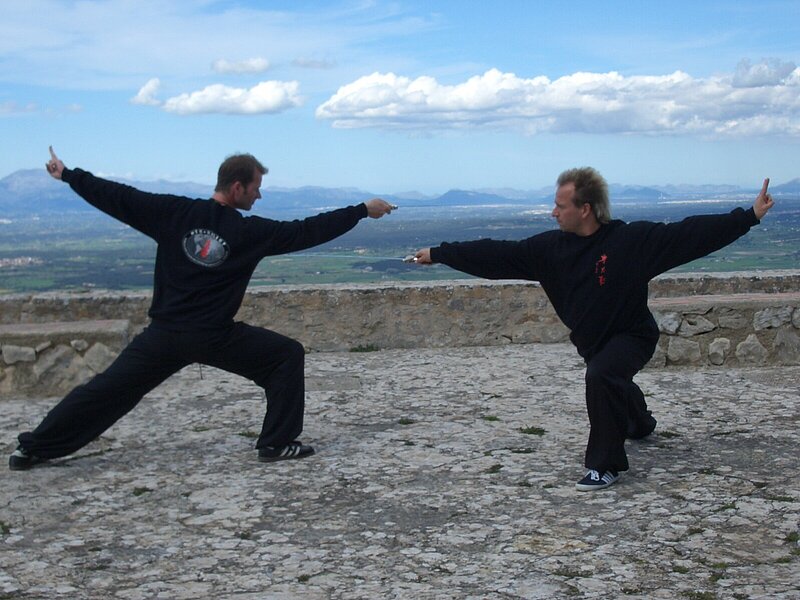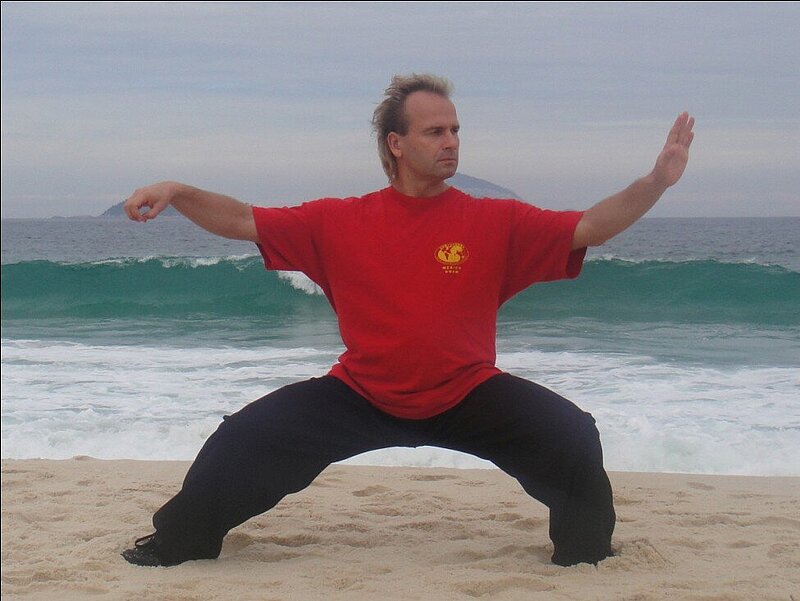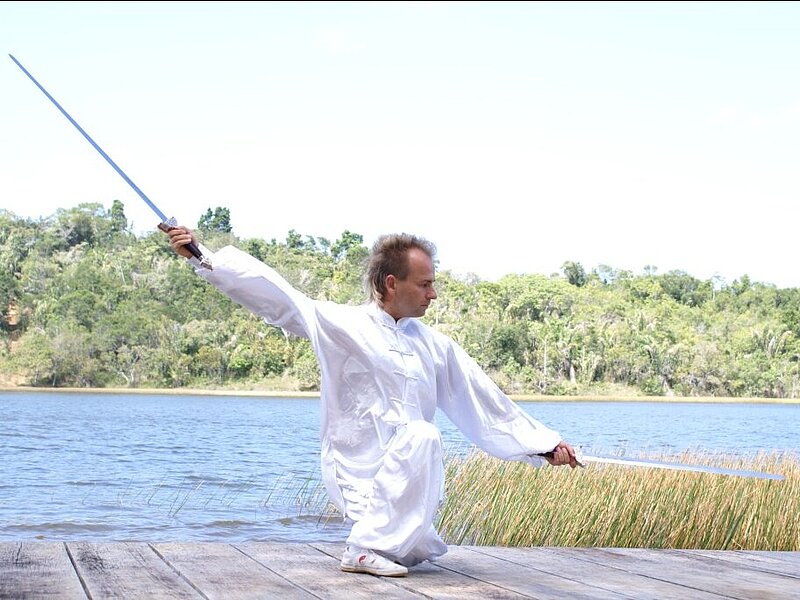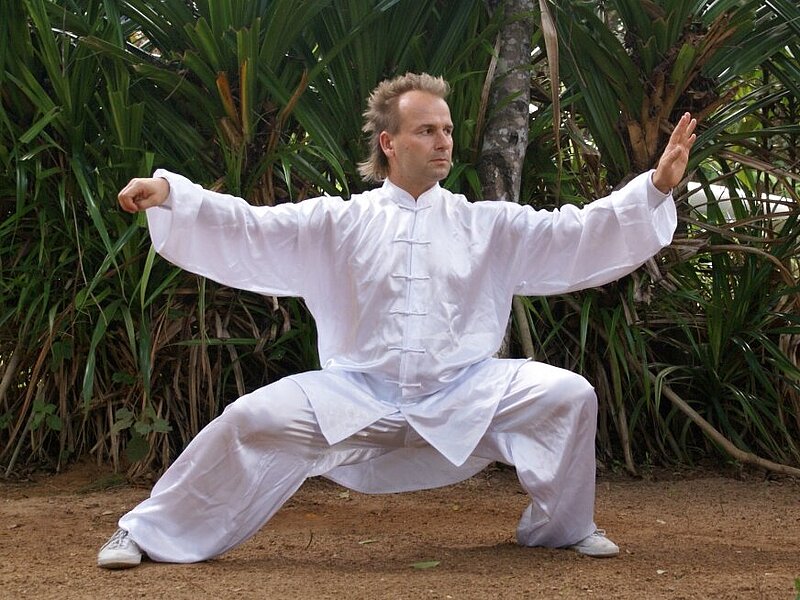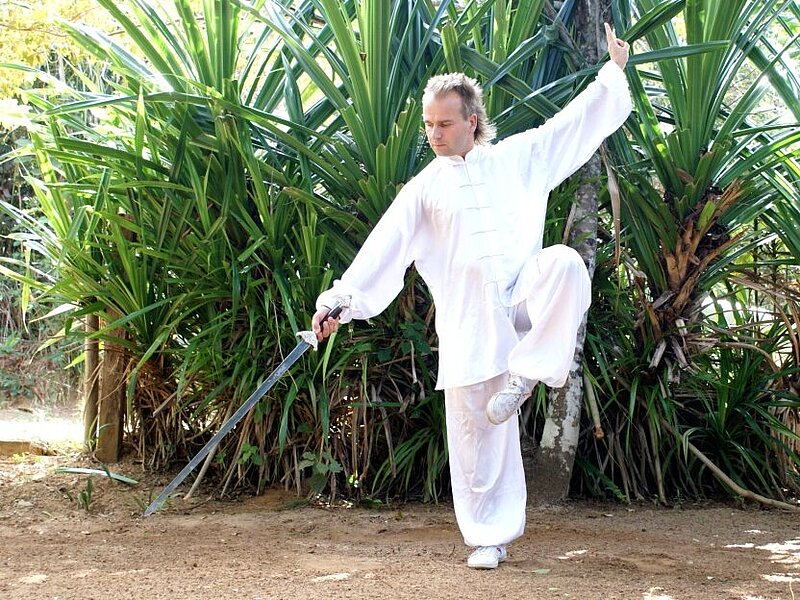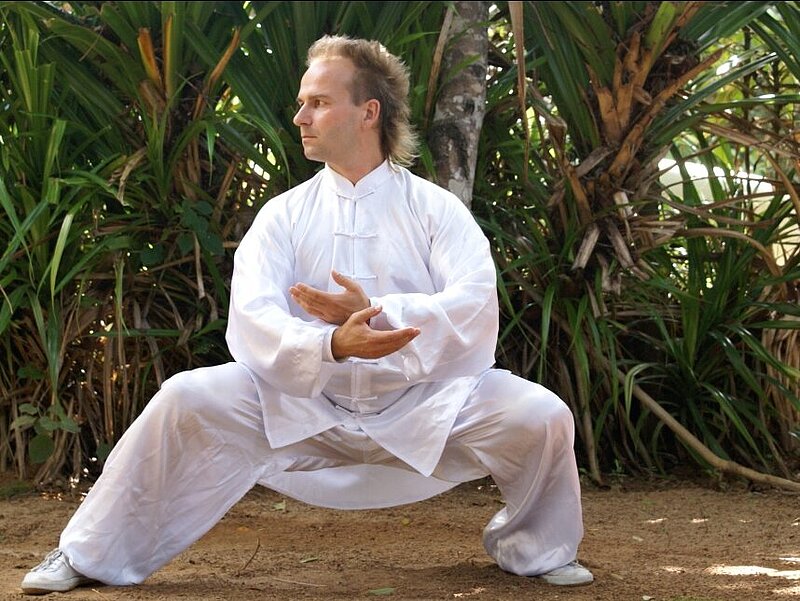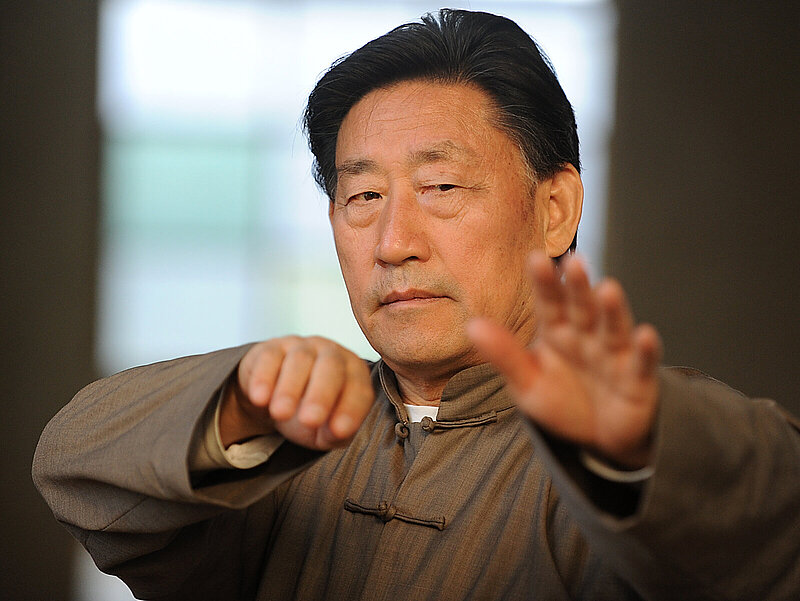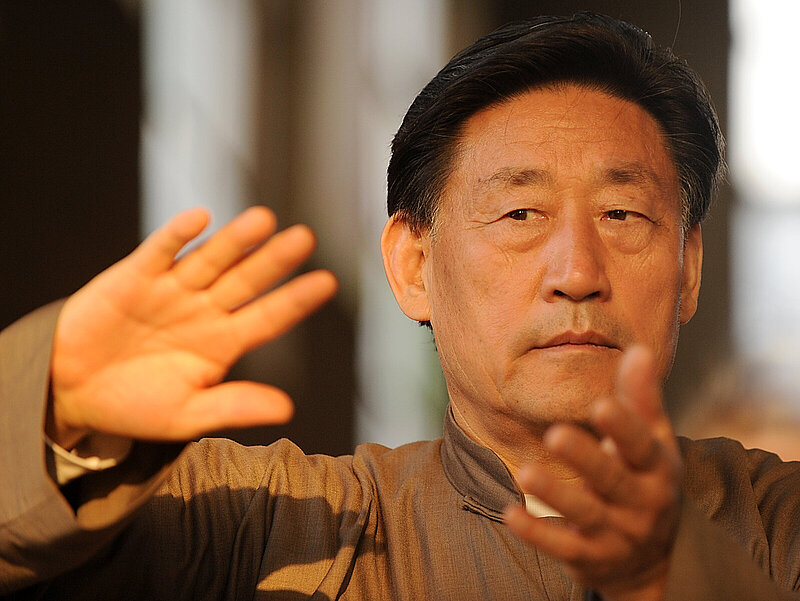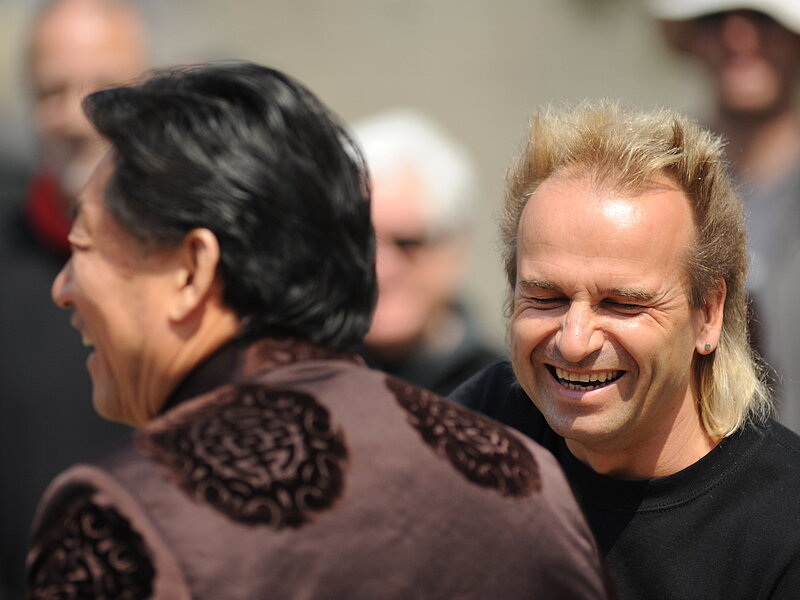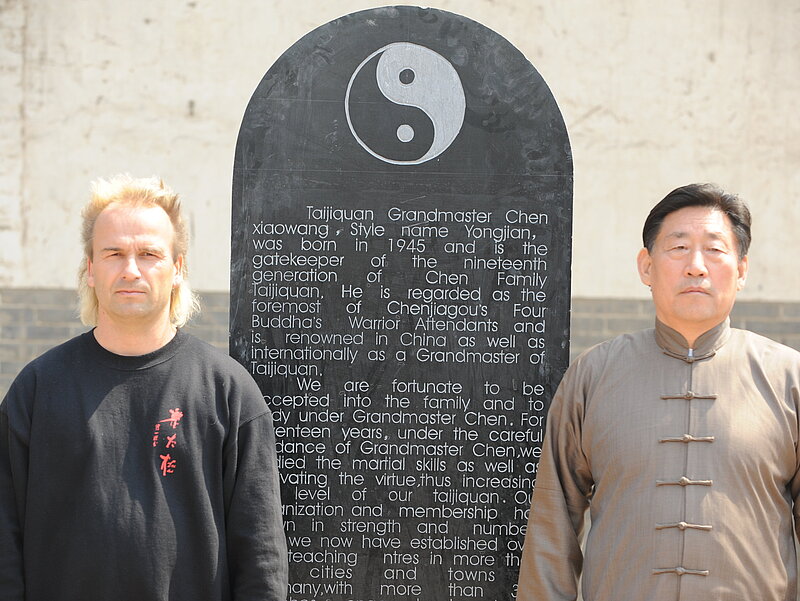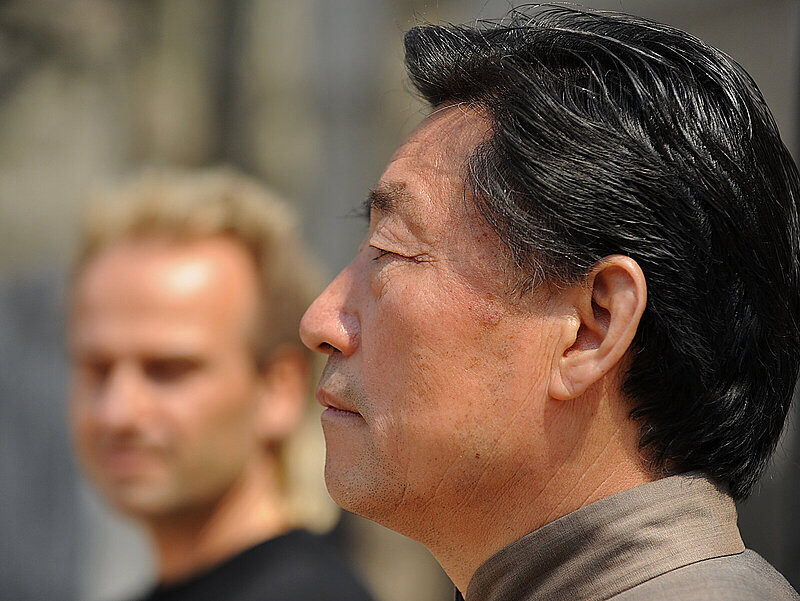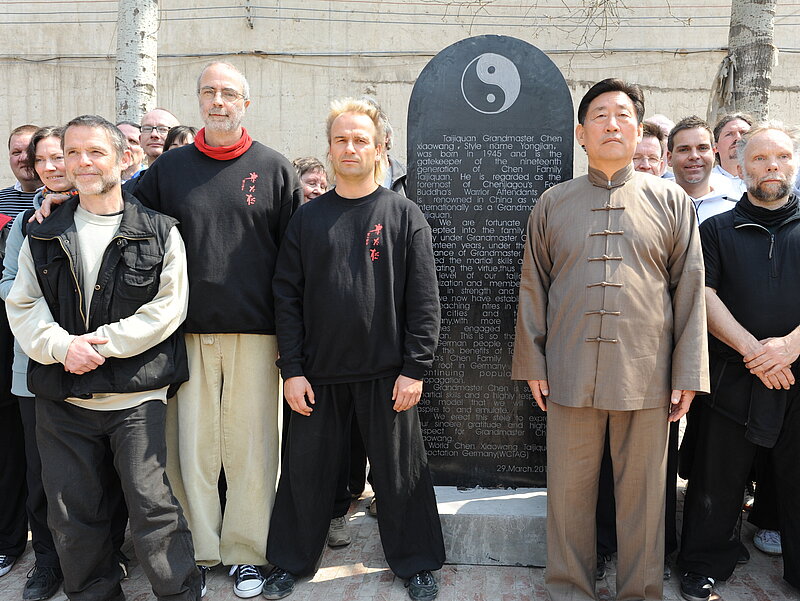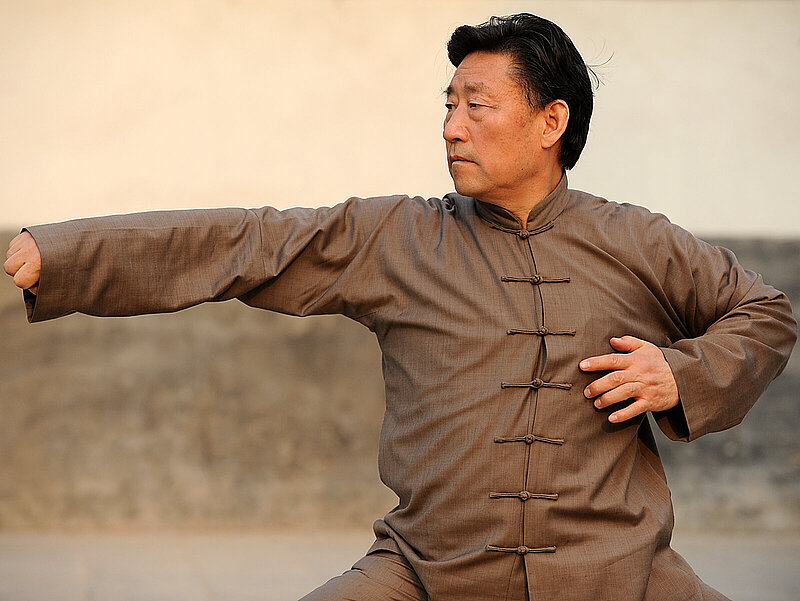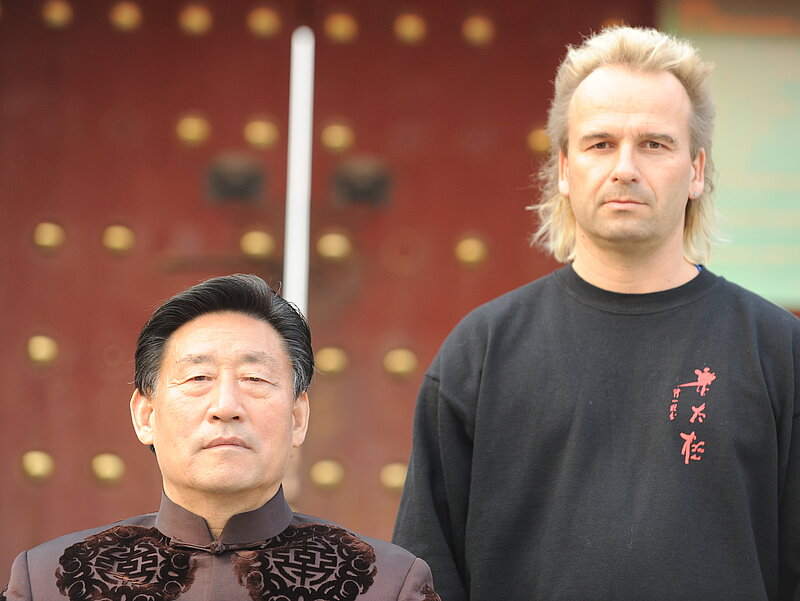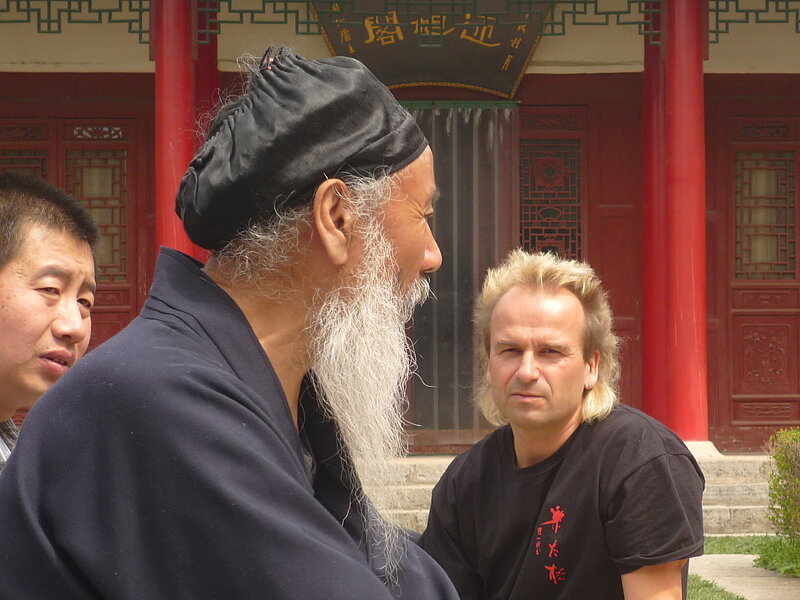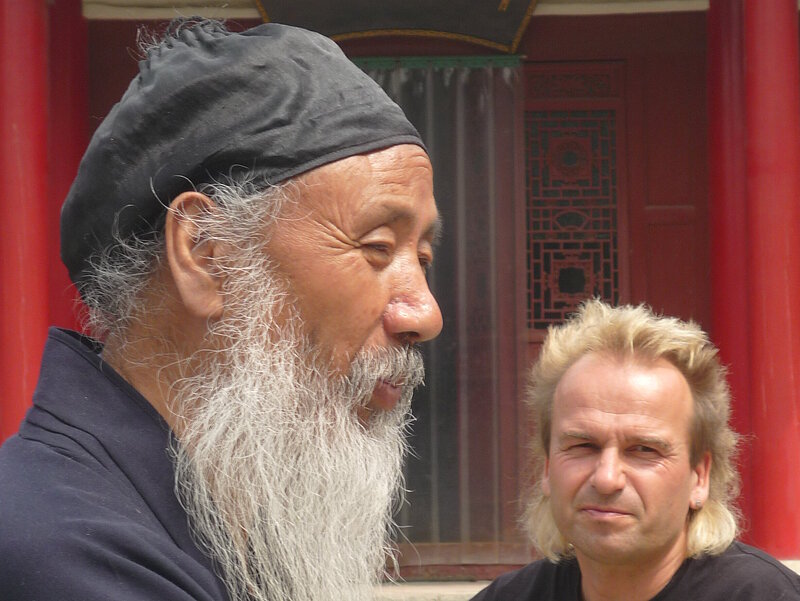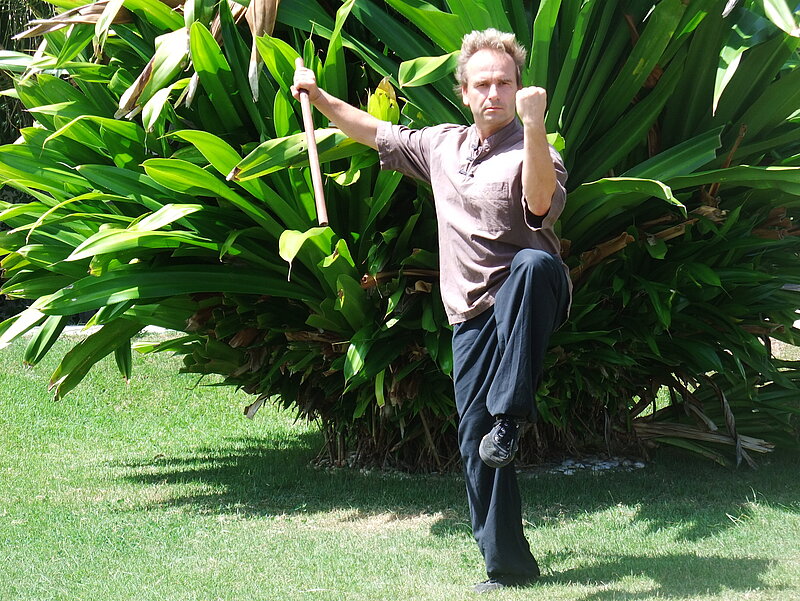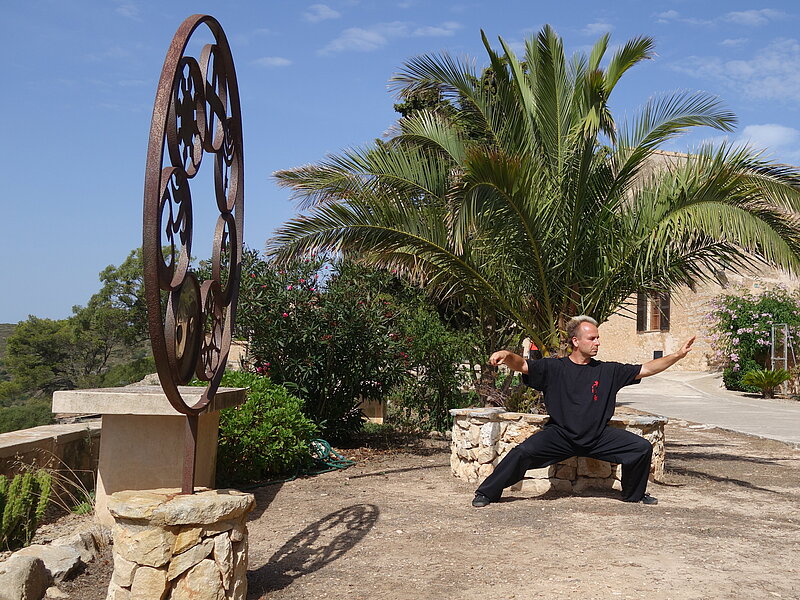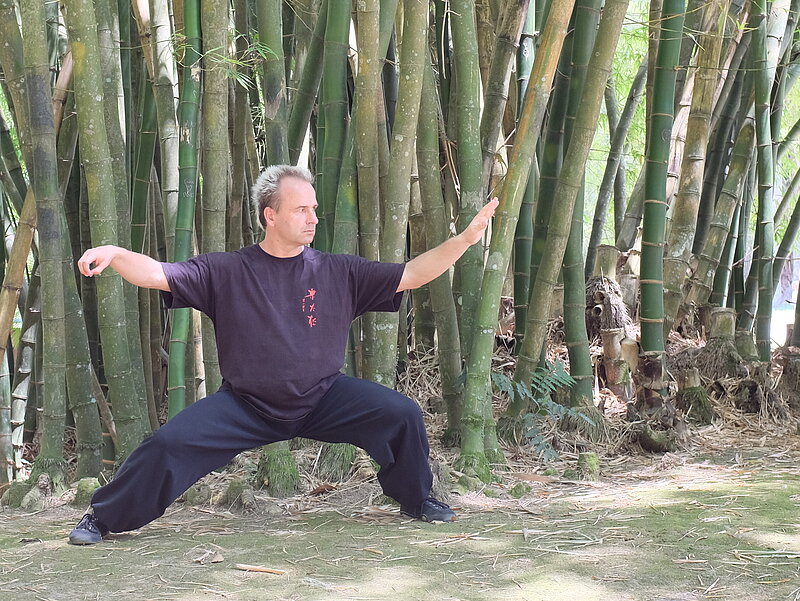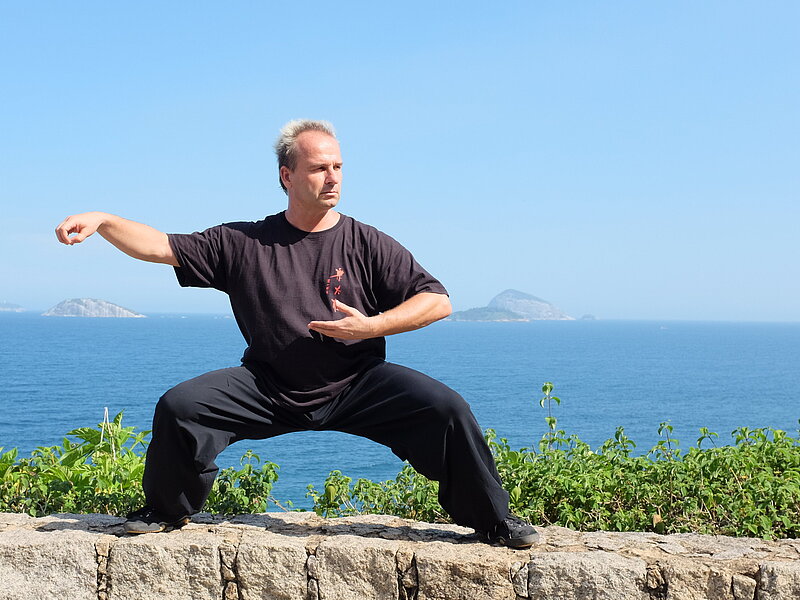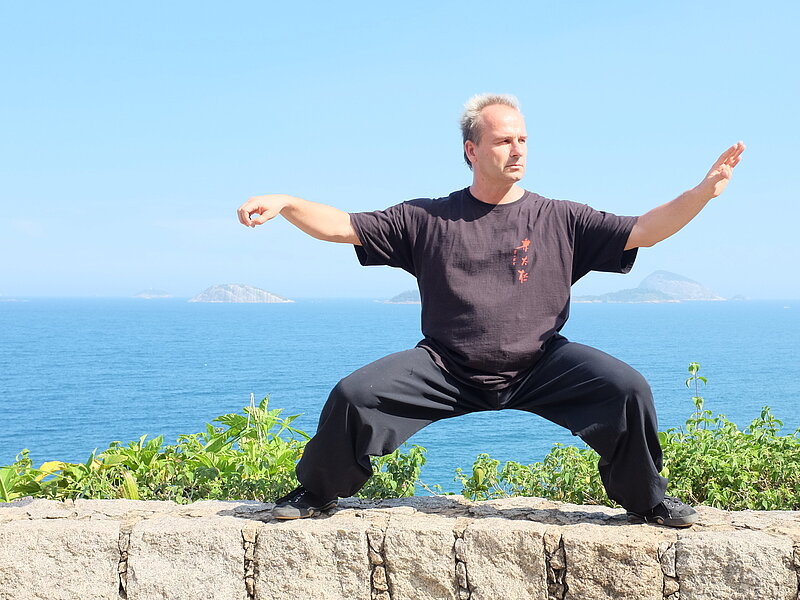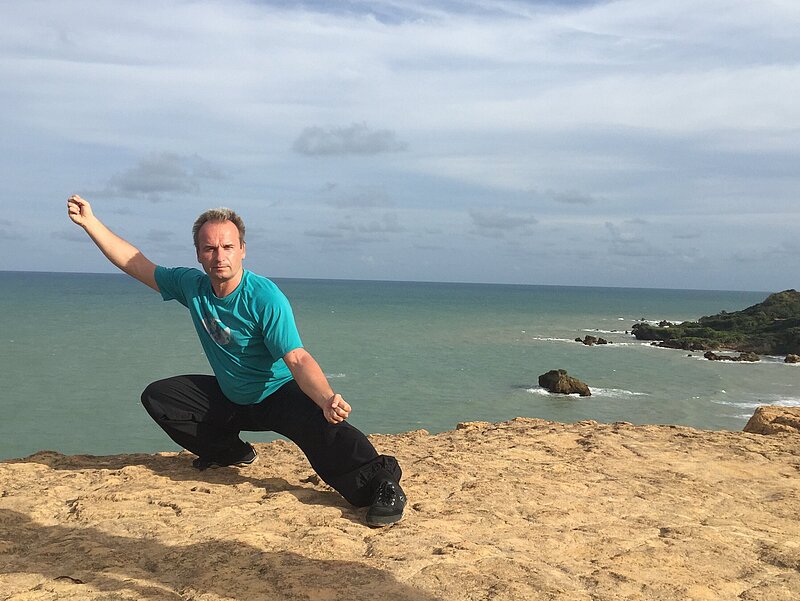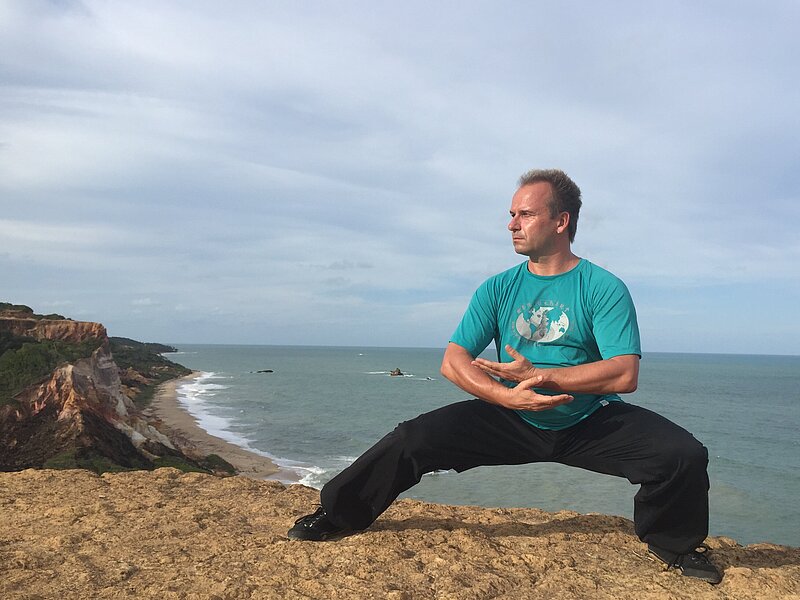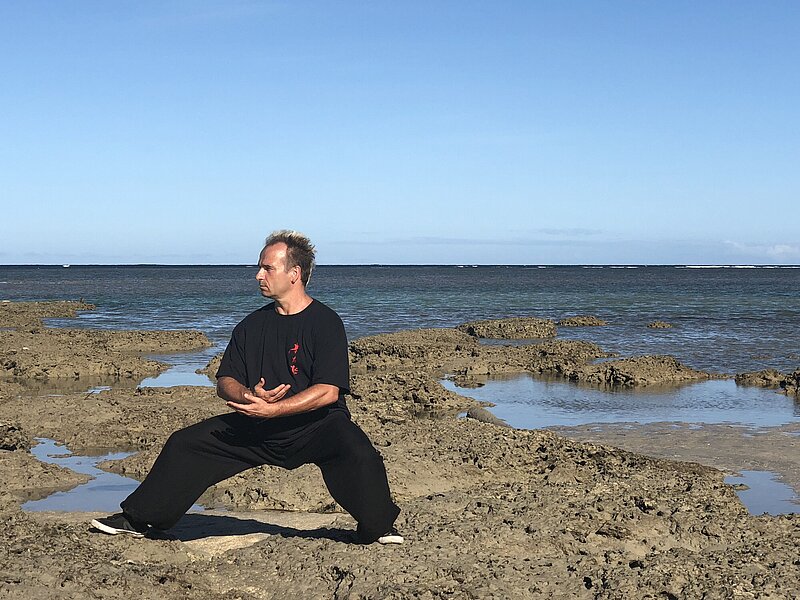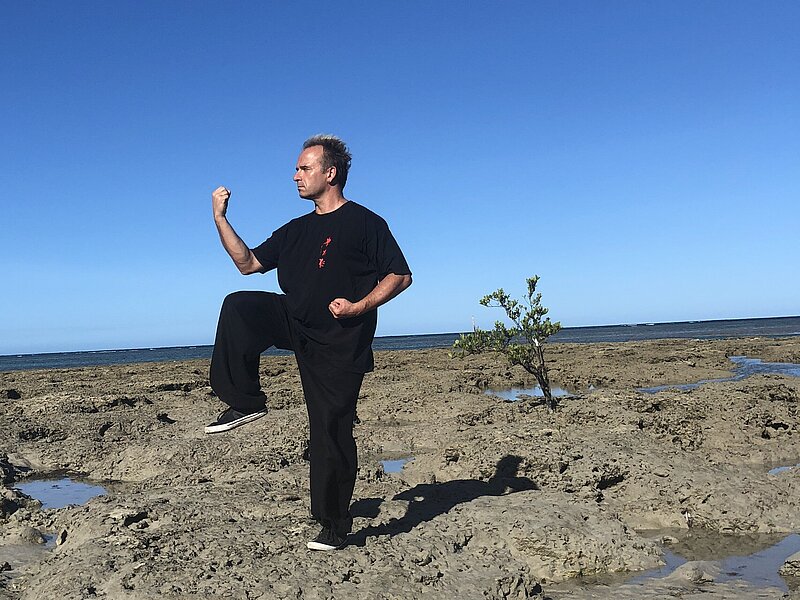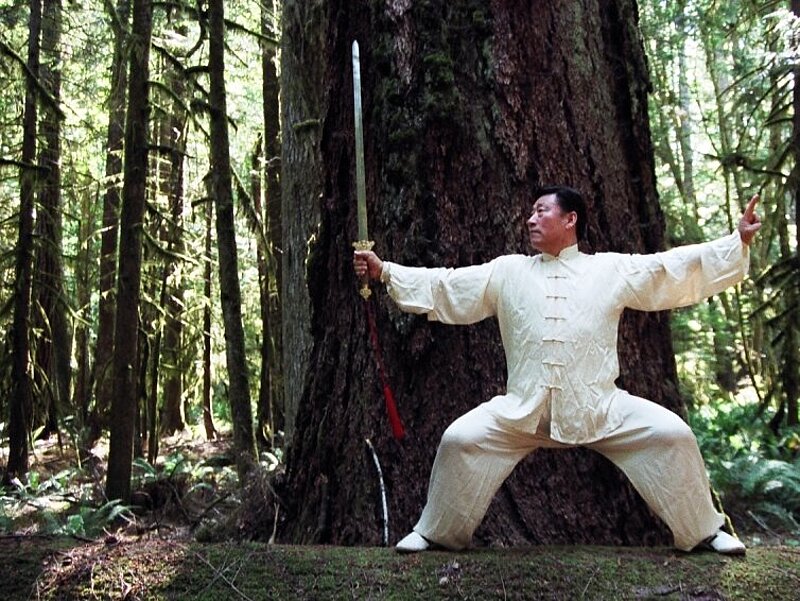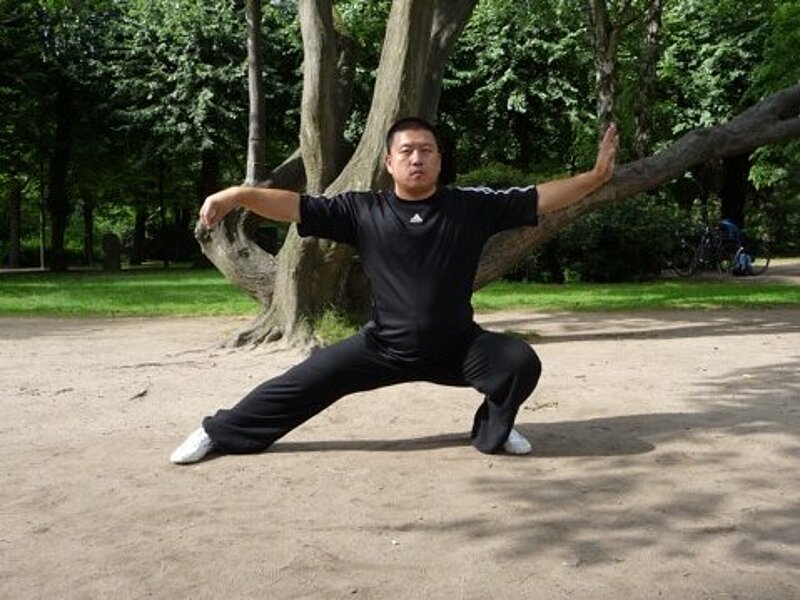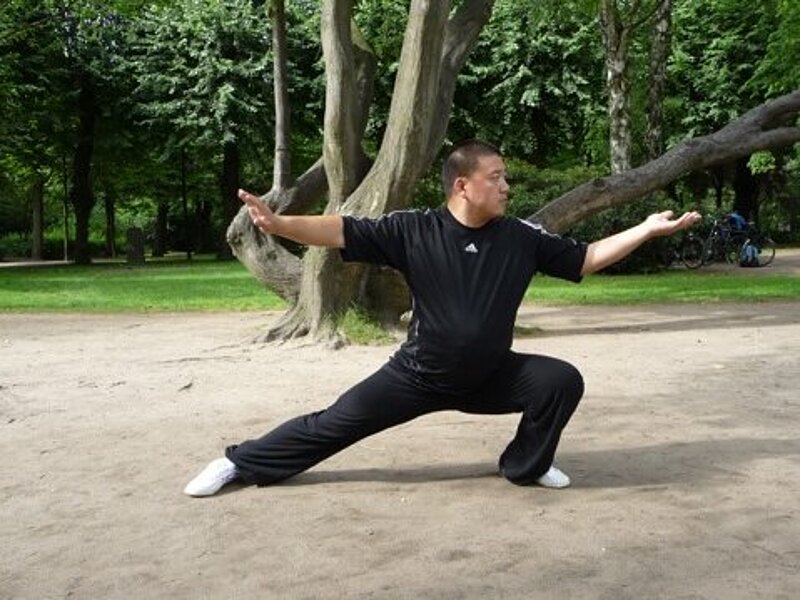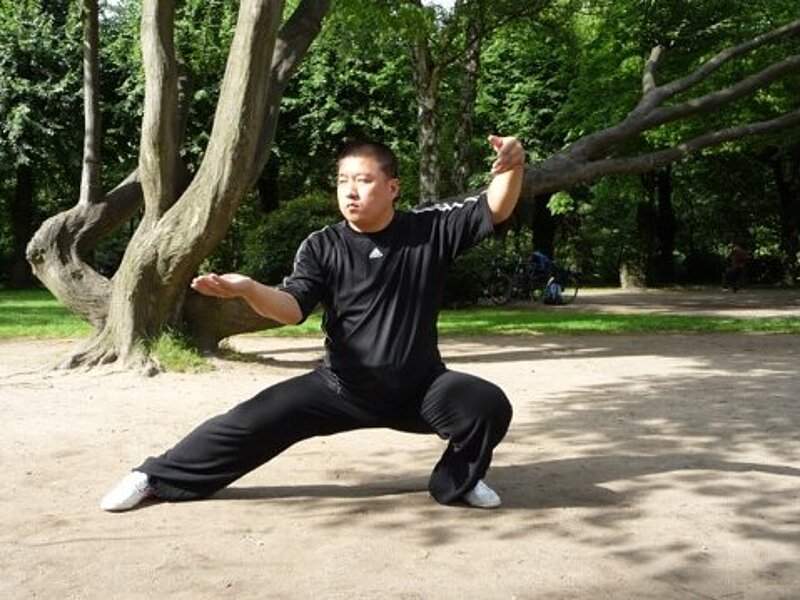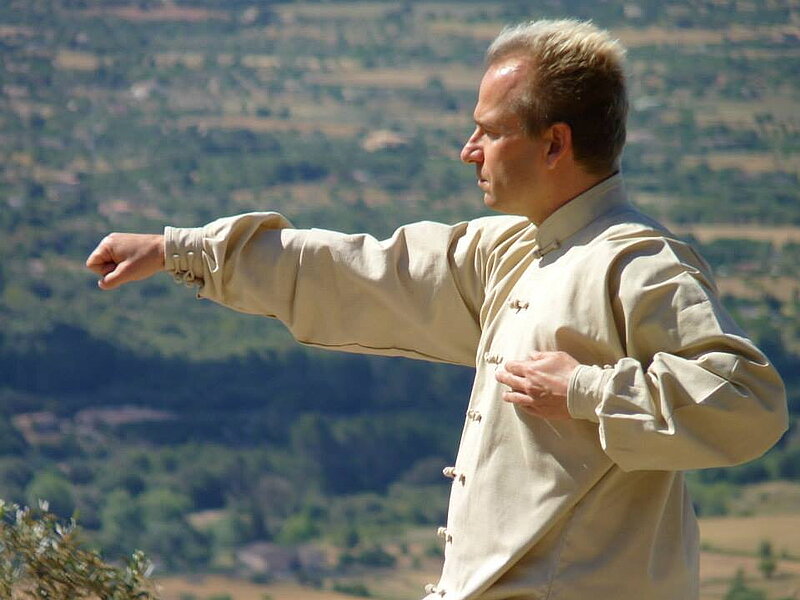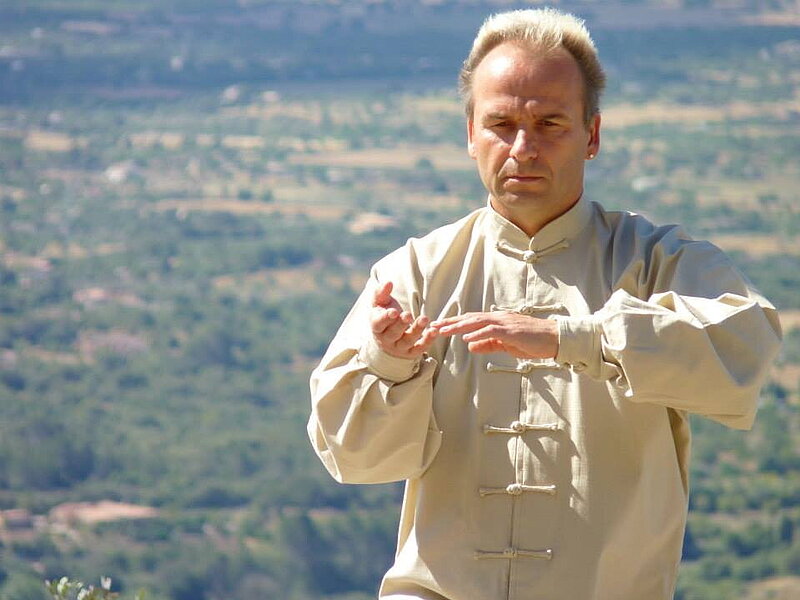Patricia Przybylski from WCTA-BR interviews Jan Silberstorff
Patricia Przybylski from WCTA-Brasil was so nice to do an interview with Jan Silberstorff:
Patricia Przybylski: What is the importance of maintaining tradition when it comes to practicing Taijiquan?
Jan Silberstorff: To maintain the tradition makes sure that the dynamics of a system, that means the inner process of each person’s transformation and progress does not get harmed. It further makes sure that the complete teachings will be transmitted without any loss. It also provides a clear teacher student relation which makes it most easy to stay as long as possible together that there is enough time to deliver the whole system without breaking up too early. Do not think that tradition is something dead. Tradition knows to renew itself,knows to develop. Just tradition develops only in an idealistic and pure original goal orientated manner. It does not allow changes in a way of fashion, likes or dislikes of personal and I or mine oriented behaviors.
Patricia Przybylski: Nowadays, we can see some variations on Taijiquan’s teachings in Chenjiagou. Were them natural and expected?
Jan Silberstorff: Yes, this has been natural all the time. See, nowadays we speak about Chen, Yang, Wu, the other Wu and Sun-style as the main styles. But we forget that each Style has so many dialects within themselves, that even only within one Style you can speak about many different substyles already. Realistically you can say that each father has thought his children different than another father in the village. And each kid is playing Taijiquan different than his brother or sister. And there has been no problem with this. Just nowadays, where students mainly do not belong to the family anymore but learning worldwide on seminars, this became a problem. Because if you are not raised with Taijiquan within your family, you do not learn it by intuition as the villagers do it in their childhoods. Because of the lack of time, you have to learn it by explanations. It is like a second language to learn. The first you learn from your parents and you do not remember how you have learned it. The second one you learn in school and by explanations. But here you do not stay with your teacher all day long and all the time but just for a few hours a week. That’s why the teachers try to explain it to you. Explanations are the way you can transport the system via seminars. But by explanations, you are more time by yourself alone than together with the teacher. And because it is learnt via seminars, people tent to visit different masters, who do have a different approach and different ways how to teach. Within the family and in your early times, you just learn from your father and just later maybe from others too. But via seminars, it is same good, when the structure and grammar of the language does not change for a long time. You need to rely on one way first that you can develop. Later, it might be no problem to learn about other ways. But in the beginning it should not be changed too much. As long as different teachers teach a different subsystem or the form or the principle in another way, it is for a long time better to have just one way, which remains the same until you understood the basics. Than you should see what others are doing. Otherwise it is very easy to get lost.
Patricia Przybylski: What should the sincere student pursue in his Taijiquan training? How to go deeper in training living a typical occidental life?
Jan Silberstorff: It doesn’t matter in which part of the world you live. Practice is always the same. There are no secrets and no shortcuts. Understand the principle correctly, get your corrections and then: train, train, train. It is like moneybox: the more money you put in the more money you have. But the less money you can spend. Means: The more you practice, the better you get. But the more you practice the less time you have for other activities. It is always a personal decision. We are all born with 24 hours a day. How we use them is step by step our decision. Again: There is no secret in training. Understand everything correct, get your corrections and then: The more you train the better you become. The professionals stay away from distractions and deviations.
Patricia Przybylski: Is it recommended to include Tuishou in regular Taijiquan classes?
Jan Silberstorff: I think it is good to have a fixed date for push hands as well. No need to do it every day or same much as form. Do it sometimes. It is said that Chen Fake did train only 5% of his time push hands. But also it is said that he has trained 10 hours a day. So by this he might have trained push hands every day for 30 minutes… :-). Taijiquan is a wonderful art, which enriches life, health and spiritual connection so much even without any martial understanding. But even for those not interested in the martial aspects of the art but in Taiji as the universal principle, the push hands exercises of Taijiquan can be a very useful tool to understand balanced and harmonious interaction within our beloved ones, communities and with people we do not like too much. It teaches us how to deal with everybody in a respectful way of loving and kindness. It teaches you how things interact.
Patricia Przybylski: Can you tell us a little about your studies in Taoism and its relation to Taijiquan?
Jan Silberstorff: When I first arrived in the city of Xian and met my first Shifu, Shen Xijing from a small village directly next to Chenjiagou, he introduced me to the Daoist temple of Louguantai and in that day to abbot DaozhangRen Farong, who is nowadays Huizhang, means he became the head of all Daoist sects in China. The Louguantai is the place where it is said that Laozi has left his Daodejing. That was in 1990. So since that time my Taijiquan-training was closed related to my Daoist studies as we travelled a lot between Chenjiagou and Xian back and forth. While in Xian, I used to go to Louguantai to listen and study with Huizhang Ren Farong. On the ground of Louguan, there is also the place of the earliest Christian sect in China, who created a unique form of a ‘Daoist Christianity’, which made it for me as a Westerner of course double interesting. Further my master brought me several times to Wudangshan and Huashan to deepen my Daoist understanding. Later I guided a lot of student travel groups to Chenjiagou and to Louguantai as well as to Huashan and Wudangshan. After more than 25 years of study, which has also included a one month per year retreat for over ten years in a therevaden Buddhist temple in Sri Lanka, I wrote my Daodejing commentary in up to date six volumes. Since the book Huangtingjing, delivered by the Daoist ‚nun’ Wei Huacun from the Heavenly Masters sect, had a major influence in Chen Wangting’s creation of what we call Taijiquan nowadays, Taijiquan is greatly based on Daoist teachings. Not as much as from the Daoist religions viewpoint, but of the spiritual and life reforming principles of the Daodejing itself. One of my volumes explain how you can use the understanding of the Daodejing in your very daily Taijiquan practice to improve your skill. You will be amazed how deep this can be. Of course Taijiquan is highly influenced by the Book of Change, the Yijing as well, which influenced all the Chinese philosophies, religions and arts. The understanding of Taiji as much as the concept of Yin and Yang plays a major role in this field and it is no coincident that the art of the Chen family later has been called Taijiquan, as it is due to its close relation to this principle.
Patricia Przybylski: Do you think virtue and Taijiquan go together?
Jan Silberstorff: I think even further. I think there is no real high level possible in Taijiquan without creating virtue. Of course you can achieve some fighting or health skills even with a bad temper also in Taijiquan if the person at least has the patience to practice long enough. But the real high and illuminating skills are reserved for the virtues ones. Let me say it in common words: Luke Skywalker in the end will always overcome Darth Vader as the dark side of the force has too much attachments to be able to realize the higher Realms of…in our case Taijiquan practice. Only a liberated, emptied and compassionate mind can enter here. And please do not think that these are just words of a meditation practice far away from society needs. I mean this not only in the sense of spiritual transformation, but same time in technical use. The more subtle you can move your body, the more subtle your mind has to be. The more subtle your mind, the higher Realms you realize. That improves not only your fighting technics regarding of listening, understanding, redirecting and releasing energy. But same time, especially your growing virtue protects you from harm, the higher the skill.
Patricia Przybylski: What is the future of Taijiquan?
Jan Silberstorff: Taijiquan will become a world art. Everywhere Taijiquan will be practiced and it will develop to one of the most intelligent and high developed systems to take care of your body and mind. Sometimes it will offer those who are interested in going a spiritual path in the way of martial arts a deep and profound way of developing same time martial, health and spiritual benefits. It will help the people worldwide to find their place in harmony and balance between Heaven and Earth, as it does provide a way which values creation same as illumination and brings them together to the full dimension of life itself, including the none-existence, existence and ‘manifestations’. This further will help all to fulfill their destiny.
Patricia Przybylski: Could you leave a short lesson for students who want to increase their taijiquan skills?
Jan Silberstorff: Empty your mind, let go and listen. Follow the principle and do not stop practicing.

